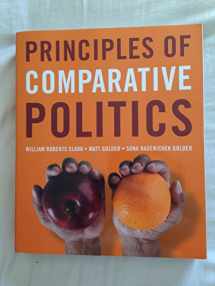
Principles of Comparative Politics
Book details
Summary
Description
Take a sneak peak inside!Click on the link below to preview chapters one. Order your exam copy today by clicking on the "Request an Exam Copy" link above.
Chapter 1
An introduction to comparative politics should be a window onto the real world of comparative inquiry, research, and scholarship. At last, a groundbreaking text gives students meaningful insight into how cross-national comparison is actually conducted, and why it matters: the enduring questions that scholars grapple with, the issues about which consensus has started to emerge, and the tools comparativists use to get at the complex and interesting problems at the heart of the field.
Beginning with a clear and straightforward discussion of the comparative and scientific methods, each chapter outlines the debates about the political phenomena that drive current research, such as state failure, the economic and cultural determinants of democracy, or the effects of regime type and electoral system.
The authors show students how comparativists construct and test theories, applying the principles of the scientific method and simple game theory to a wide variety of examples and cases. Students won’t get lost in detail they’ll never use or remember and instead learn exactly why the variations across institutional structures and functions are important.
The book’s outstanding pedagogy includes:
- Chapter opener overviews to summarize key points from the text;
- Bolded key terms and a marginal glossary to help students identify and manage concepts;
- Rich and comprehensive data, helpfully schematized in more than 250 tables and figures;
- An excellent photo and map program to highlight the book’s thematic and substantive goals;
- End of chapter lists of key concepts, with page references;
- End of chapter problem sets of 5-10 problems each to help students work through the comparative puzzles and game theory examples;
- A comprehensive bibliography;
- Appendix materials to support chapter problems as well as encourage further research.


We would LOVE it if you could help us and other readers by reviewing the book
Book review



